15 Platforms to Diversify Your PPC Marketing Campaigns

PPC advertising can be a great benefit to your business, but it's easy to get stuck in a rut. Do any of these sound familiar to you?
"I've been doing well with this ad network, so I don't want to change."
"I've heard bad things about other networks, so I'm sticking with this one."
"I don't have the budget to mess around; I'll stick with what works."
These, and other reasons, are all justification for staying complacent. So, let's challenge each of these.
If you're using one ad network, how do you know it's the best network for you? Sure, some of the big names like Google and Facebook are good enough that they should be a core part of any business strategy, but that doesn't mean they have to be the only part of that strategy.
If you feel like your current strategy works, how do you know you won't do better on another network? Have you tried it?
What other decisions are you making without the data to back them up? What possible improvements are you avoiding because of the potential challenge involved?
Don't get me wrong; sometimes, the gamble might not pay off. Sometimes another ad network won't do very well for your brand. Sometimes you end up wasting a little money. The point is, until you test it, you don't know. You could be missing a huge untapped opportunity, and until you look into it, you have no way of knowing.
Have I convinced you to try other marketing platforms? If so, great! That was my goal all along. Here's my list of 15 platforms you can use to diversify your existing PPC marketing campaigns.
1. Native Advertising on Taboola
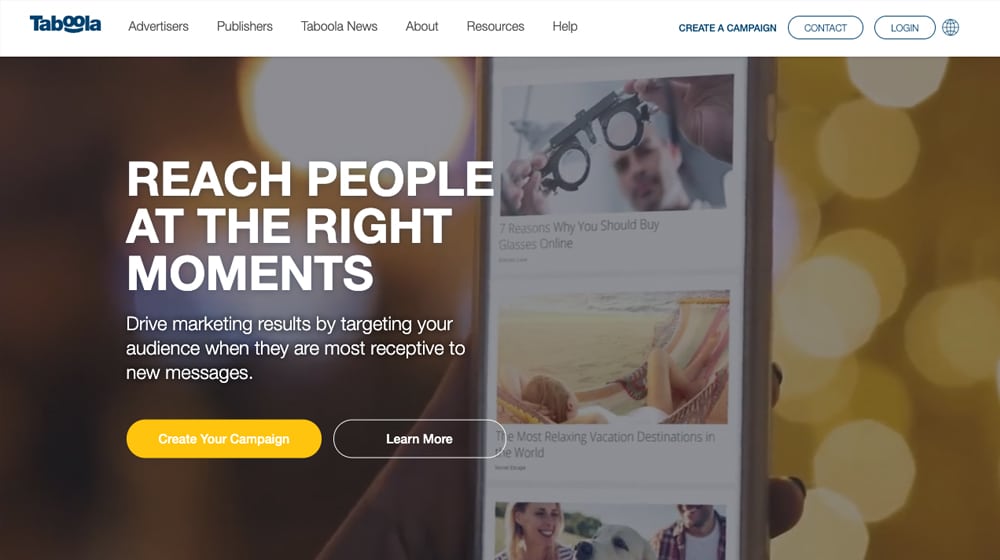
Taboola is one of the big names in native advertising. I can virtually guarantee that you've seen their ads almost every day – as long as you're not using an ad blocker on every platform you browse on, at least – and their numbers back it up. They have an immense amount of traffic, they're hugely profitable, and they're widespread. Their only real competitor was Outbrain, and at the end of last year, the two merged.
This makes the combined native advertising company a powerhouse capable of taking on Facebook and Google to be one of the biggest advertising companies in the world. Thus, much like both of their competitors, Taboola/Outbrain is going to be near-essential for anyone who can use it. Luckily, it has a low barrier to entry; you can run a campaign for as little as $10 per day.
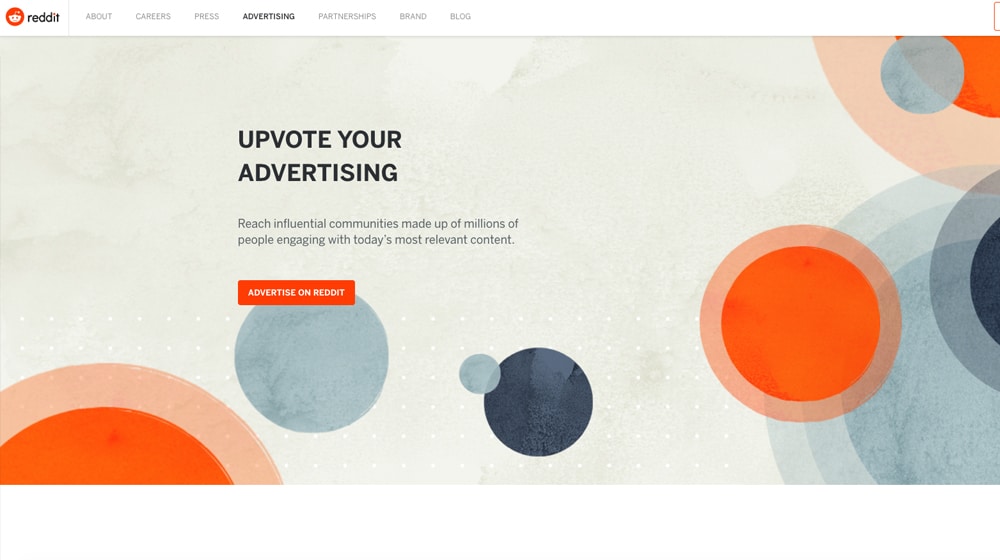
There are two ways to advertise on Reddit: organically and paid. Paid advertising is the easier of the two; much like any social media PPC program, you pay money and you get a promoted spot in a subreddit of your choice. Unlike many other social networks, however, Reddit ads have a relatively hostile reception; if your offer sucks, if your ads are disingenuous, or if you're making some kind of mistake, Redditors will not hesitate to call you out and lambast you.
Organic advertising is much more difficult; you do the same thing as the above, but instead of paying for it, you make your posts organically in the relevant subreddits. If you come across as genuine – and your business isn't going to get roasted on its own – it can work out very well. On the other hand, if you give them any reason to doubt you, you can be swarmed, and the fallout of such a weakness can last forever.
3. Promoted Answers on Quora
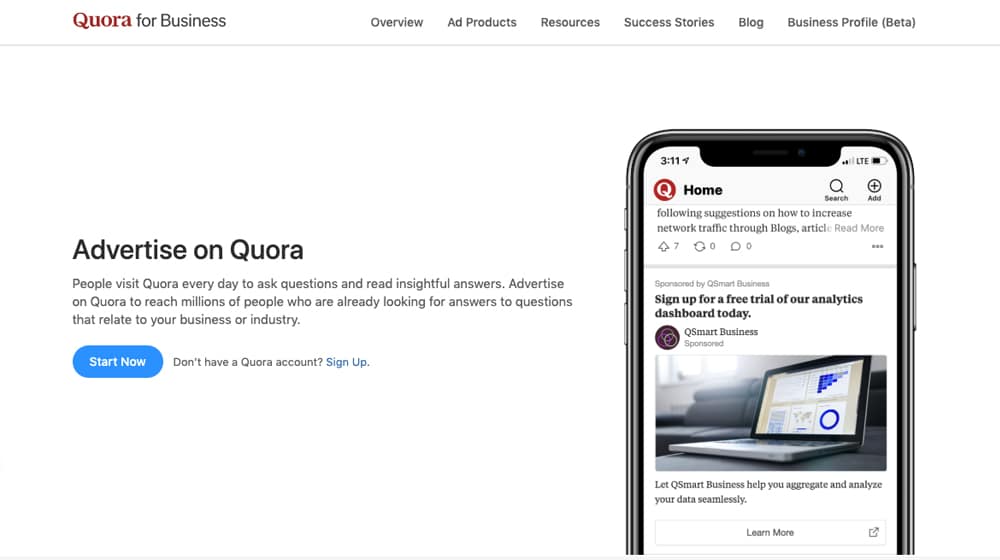
Quora is one of the few question and answer sites left alive on the internet today. In the past, sites like KGB or Yahoo Answers allowed people to ask questions and get answers from the public, but many of them failed when they were overrun with low quality answers, jokes, and very little value. That, and Google's low quality content filters kicked in.
Quora has become a place where people ask questions, and businesses with offerings relevant to the question post a miniature blog post in the answers as a way to build links and traffic. It works pretty well, but with Quora's relatively new ads system, you can kick it into high gear. It's all about finding relevant opportunities and creating compelling, interesting copy in the form of a question or answer, or something related enough that it blends right in. Give it a try!
4. Traditional PPC on LinkedIn
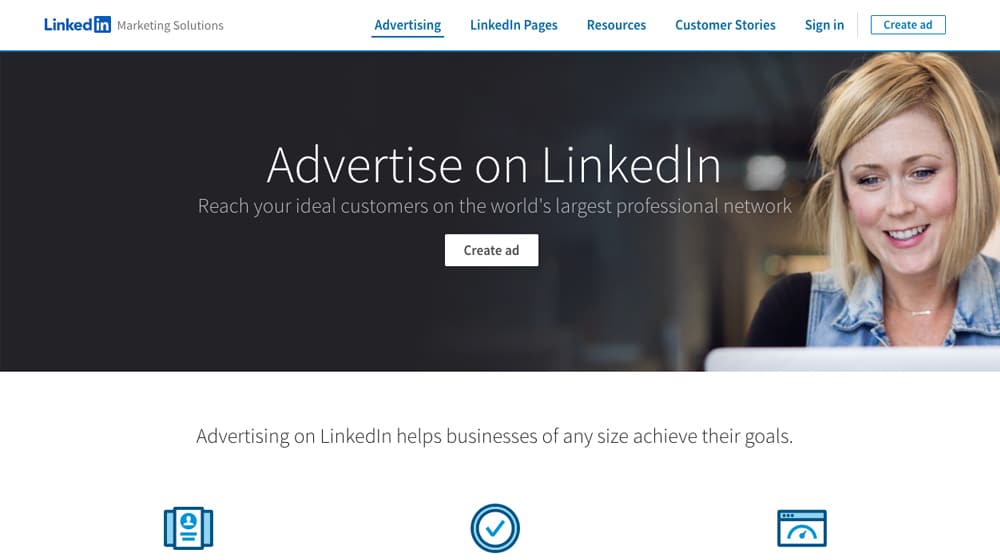
If I tell you that you can advertise on LinkedIn, what do you think of? I know a lot of people who think "but I don't have a job to advertise" and disregard it.
The fact is, LinkedIn is almost more like a professional Facebook than a job networking site these days. Oh, the job networking is still core to their relationship building, but many people use the platform for semi-professional blogs, and people browse it to keep up with their friends and coworkers who aren't active in other locations.
By advertising on LinkedIn, you get to pay to reach an audience of relatively young professionals, most with a leaning towards some kind of business, tech, medical, or other industry focus. It's not as broad as Facebook, so not all businesses can be successful on the platform, but if you can, it's a great option to explore.
5. Algorithmic Optimization with AdEspresso
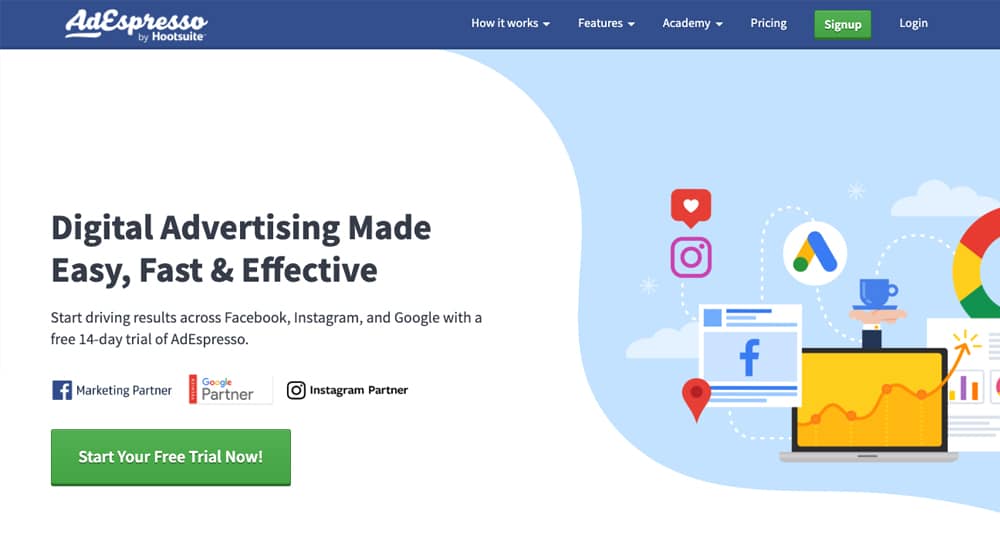
AdEspresso is not going to be some new horizon of a broad new audience for you, like many of the other options on this list. In fact, it's limited to just Facebook, Instagram, and Google Ads. So what makes it worthwhile?
What AdEspresso does is optimize your advertising. By running your ads through their platform, they can algorithmically generate, test, and iterate on your ad copy to develop high-converting, high-profit ads. Some of the best features are more restricted to their large business and agency offerings, but they have a wide range of useful tools to help you improve ads, both automatically and manually. If you've ever thought you could be doing more with your Facebook and Google ads, but you aren't sure how, this is the exact kind of tool you need to use.
6. Automated Advertising with Smartly.io
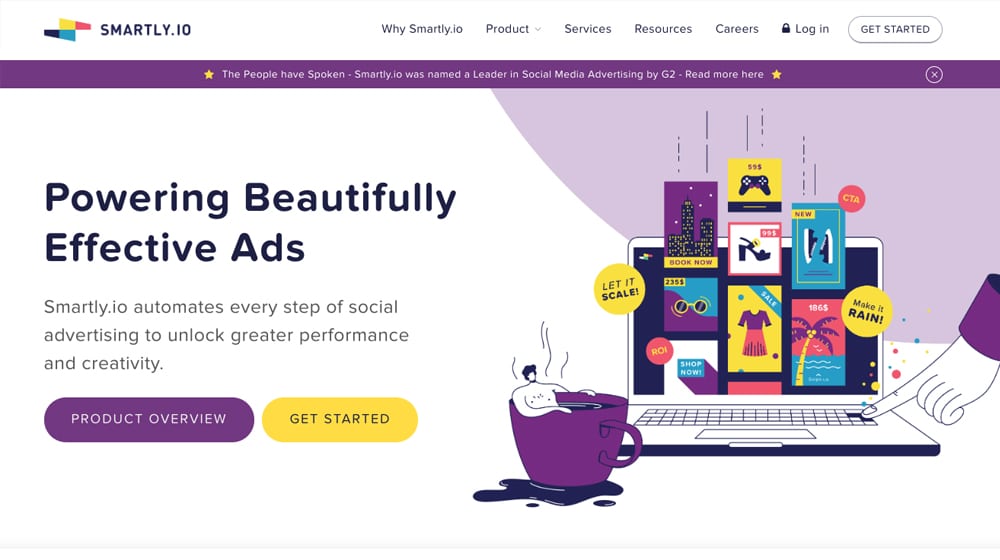
Smartly is an interesting tool that is rather similar to AdEspresso in a lot of ways. The core of the platform – which works for Facebook, Instagram, Pinterest, and other platforms – is an automation engine. Every step of the ad management process, from ideation to targeting to optimization, can be automated to some degree or another. Combine this with the choice between a self-serve and a full service platform, and you have a lot of flexibility in how to extract value from Smartly.
With scaling pricing, Smartly is definitely one to watch. They have an almost unprecedented growth rate, broadly positive reviews and testimonials, and a wide range of features to explore. If you're willing to dig into their integrations, they can be a great way to take your PPC advertising into an entirely new paradigm.
7. Search Competition with Bing
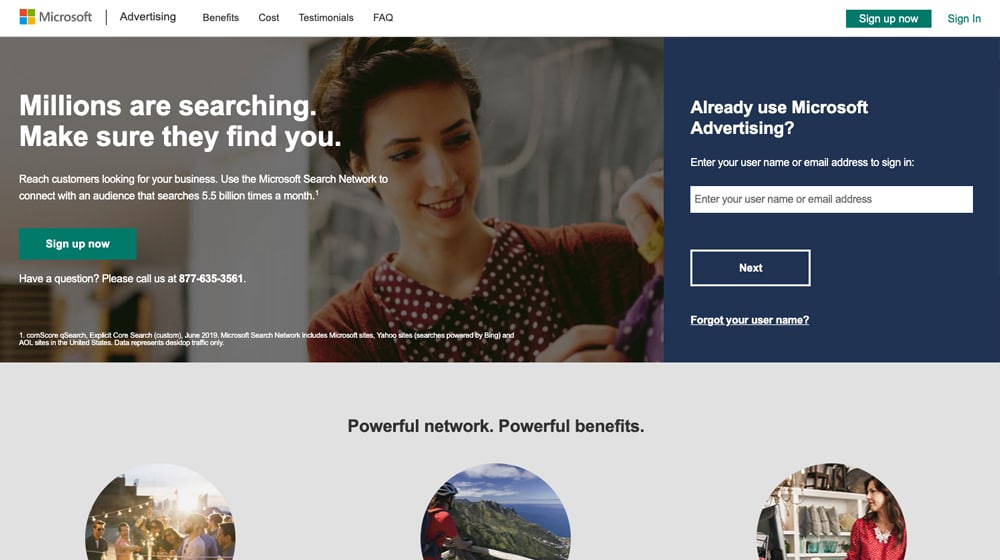
You may have noticed over the last few days, that Google changed their desktop search results page to look more like their mobile search results, with URL and favicon above the title of a page rather than below it. This means that, for a while at least, Bing looks more like Google than Google does. You know, until people get used to it.
Bing has always been that company trying to compete with Google, and the fact that they're a Microsoft offering hasn't necessarily helped them as much as you might expect. They've always trailed behind, but the fact that they still compete is a testament to how much people are looking for a decent alternative to Google.
Bing ads tend to be very similar to Google ads, just lower in volume. They're cheaper, as well, because a lot of companies don't see them as worthwhile compared to investing the same amount of money into Google. And, sure, maybe for some companies that's true. Is it true for you? Why not try it and find out?
8. Expert Optimization with Optmyzr
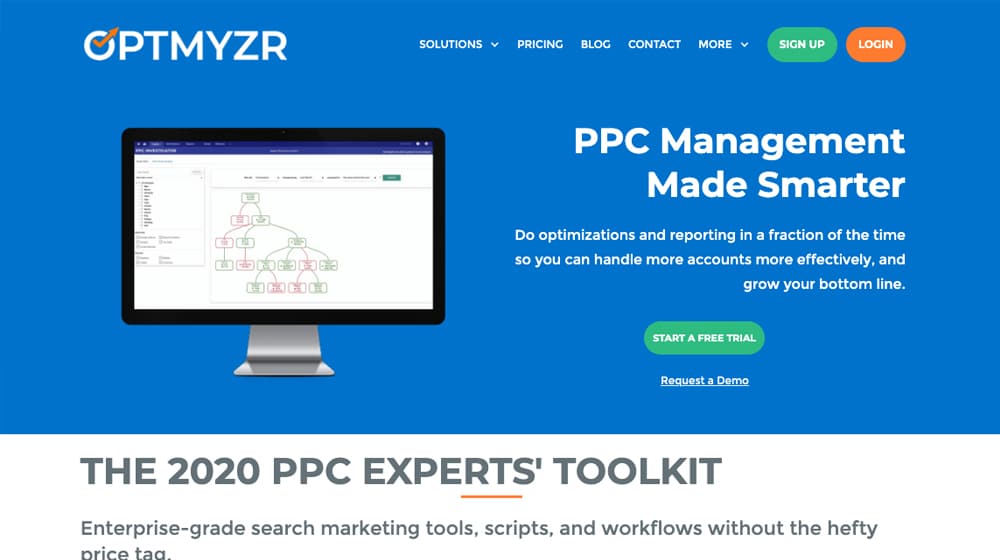
One of the biggest complaints many people have with PPC is simply the amount of time it takes them to actually do the work. Creating, iterating, testing, analyzing, and adjusting ads takes a lot of time, so much so that for many companies, it's the full time job of at least one person. Add in creating ad copy, researching targeting information and demographics, reading and generating reports, and it only gets worse.
Optmyzr is a tool that helps streamline existing PPC efforts. You can build campaigns with a click of a button, optimize based on suggestions of what has worked in the past and what is predicted to work based on machine learning algorithms, and generate reports as the ads run to guide future efforts. It might not sound like much, but when it doubles the effectiveness of your ad management, you'll be very interested to learn more.
9. Diversification with Small PPC Networks
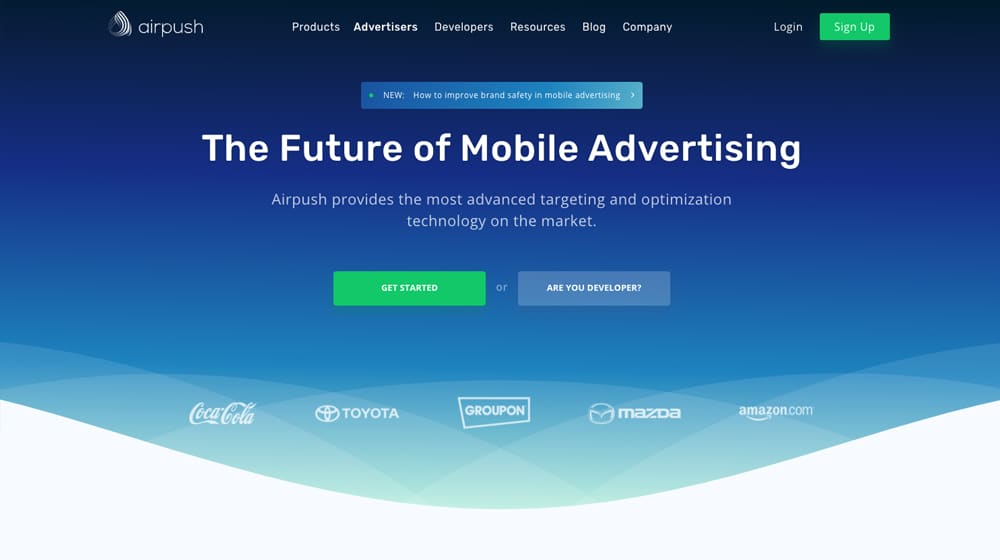
We all know the big names in PPC. We're aware of Google, of Facebook, of the other social networks. We know all about the bigger names in third party networks, too, like BuySellAds, Advertise.com, and AdRoll.
Here's a secret: there are dozens, hundreds more ad networks out there you can try.
Yes, most of them don't have very large publisher rosters. Yes, a lot of the sites in those networks might not be very good, or might not have a lot of traffic. But you know what? They're still ads, they're still exposure, and they have one benefit over all of the big names: they're cheap.
What kind of ad networks are we talking about here? You have a lot to choose from. Here's just a random selection from some of the larger lists out there: AdBull, Adperio, AirPush, Clove Network, Exoclick, Komli, LinkWorth, MediaStay, Open X, PlayWire, Pubmatic, Smowtion, Traffective, Unruly.co, and Xaxis.
Are they all good? I don't know. Will they work for you? Maybe. Will they cost you an arm and a leg? Almost definitely not, unless you make a few mistakes in setting your budgets. Is there any drawback to using them? If anything, you might waste a little time. I can't say that's enough to get me to avoid trying something new, just to see how it works.
And that's enough for more standard-adjacent forms of PPC. What if you want to do something little different? Here are a few more options, specifically aimed at non-standard means of advertising. You may already do a few of them, but if you don't, this is a good time to start.
10. Physical Advertising with Lob
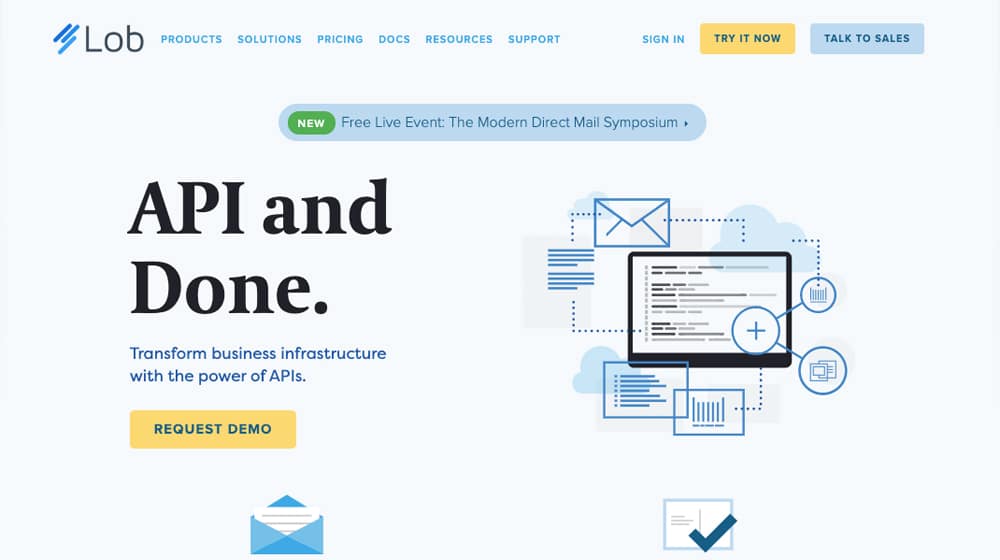
One thing we might lose sight of as online marketers is that there are channels beyond the internet. PPC advertising is one thing, but you can also diversify your marketing with other channels, particularly physical channels. Now, a TV ad spot might be expensive, and radio ads aren't always that effective, but you can give them a try. You can also consider mail-based marketing. That's what Lob can help you do.
Lob is a company that handles mass mail campaigns, and they power it by API. What this means is that you can use their API to set up, not just a mass mail campaign, but targeted, specific mail campaigns.
You know how, with an email campaign, you can set up triggers to send new messages to users based on their behaviors? You can set up a drip campaign to feed information to keep them hooked. It's easy with a newsletter; all you need is an email address and some templates, a few wildcards, and you're good to go.
Lob does the same thing, but for physical mail. You can set up campaigns, complete with reactive triggers and customized mailers, and run it all without having to get your own hands dirty with the printing and postage. Overall, it's surprisingly effective for many businesses.
11. Running an Affiliate Marketing Program
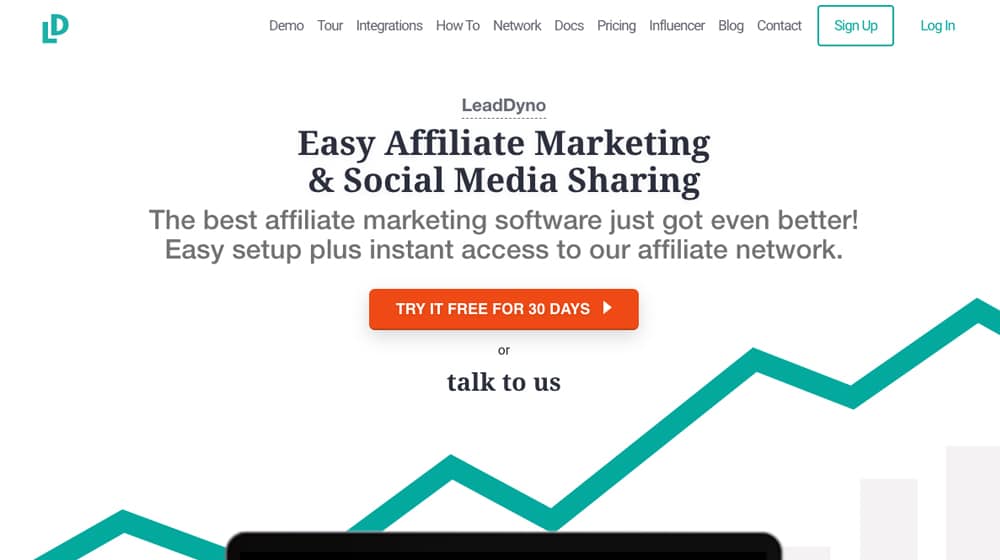
In the realm of paying for leads, one of the better options is to run an affiliate program. Affiliate programs aren't actually all that difficult to run, but you have to keep a few considerations in mind. For one thing, if you don't have some kind of safeguard in place, sooner or later someone will try to exploit it for some quick cash with some fake leads.
For another, you need some way to qualify those leads, and convert them into customers later on down the road. Of course, by offering a higher commission for actual sales at the time of referral, you can get your affiliates to do a lot of that work for you.
There are a few different ways to run your own affiliate program. Some companies offer to run it for you, handling all of the technology and simply taking a commission of their own. Sometimes you can get a free or cheap WordPress plugin to do the heavy lifting for you, though that takes a bit more elbow grease. Either way, it's a great option for diversifying your sources of traffic, leads, and customers.
12. Community Outreach with Facebook Groups
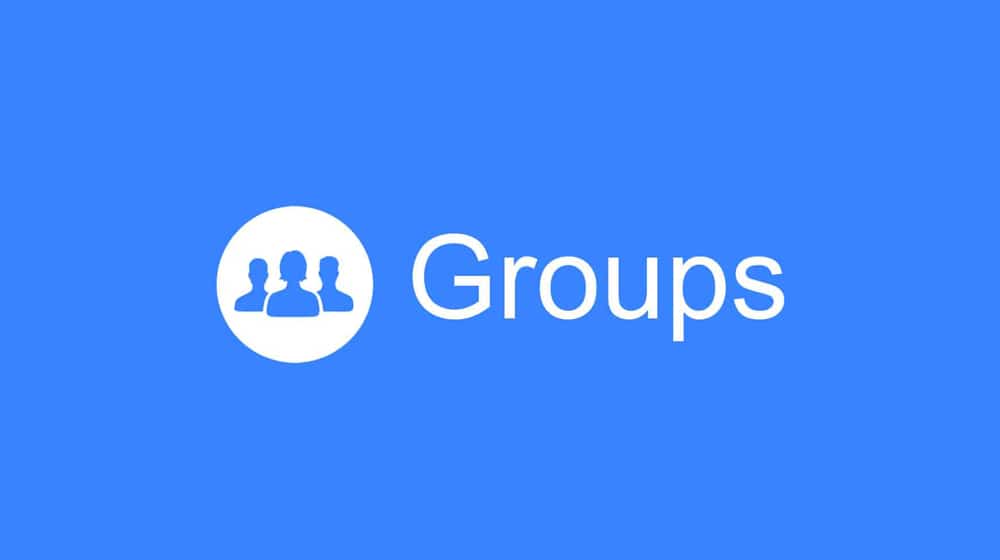
Facebook has had a lot of issues as a marketing platform over the years, and many people feel like the site is on a decline. Sure, their user base is still in the billions, and they have more traffic than anywhere else on the internet, but you can only capture a small fraction of that traffic without vast investment.
There's also the imminent Facebook redesign on the table. Facebook has announced that they're working on a new design, and that the new design will focus on friend and family first. That's great for users who want to keep up with their friends and family, but it's not so good for businesses who are already seeing declining reach.
Facebook groups are a good way to bridge this gap. You can use groups for marketing, both by creating and running your own community and by joining and participating in existing communities. It's a good way to get another version of the Facebook marketing channel where you might not normally be able to reach.
13. Video Marketing on YouTube
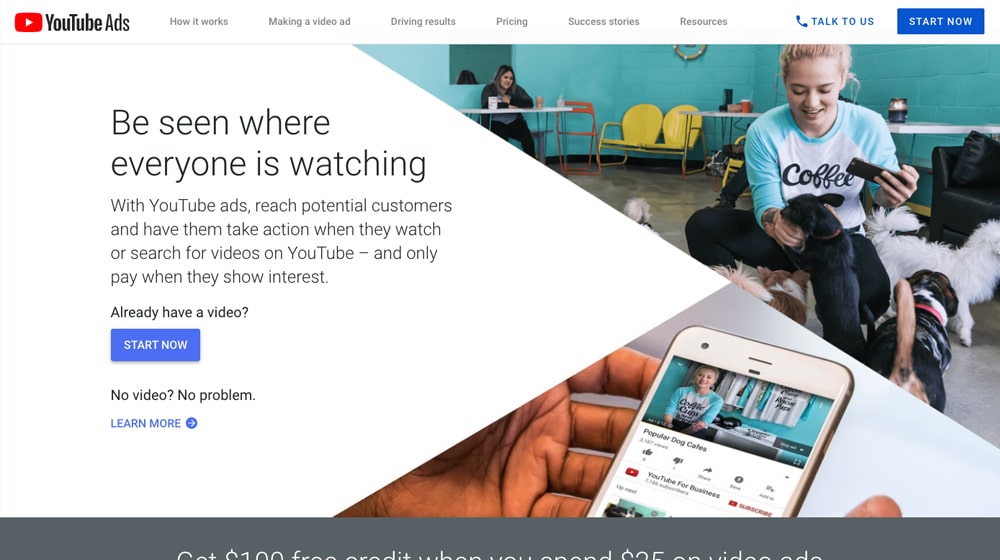
Using YouTube for PPC is fine; you can run Google Ads with YouTube as the destination just fine. However, you can also use YouTube for video marketing. Be the one producing videos, not just the one putting those ads over top of them. It's a whole complex world of unique content production and marketing strategies, so dive right in.
14. Audience Engagement with Webinars
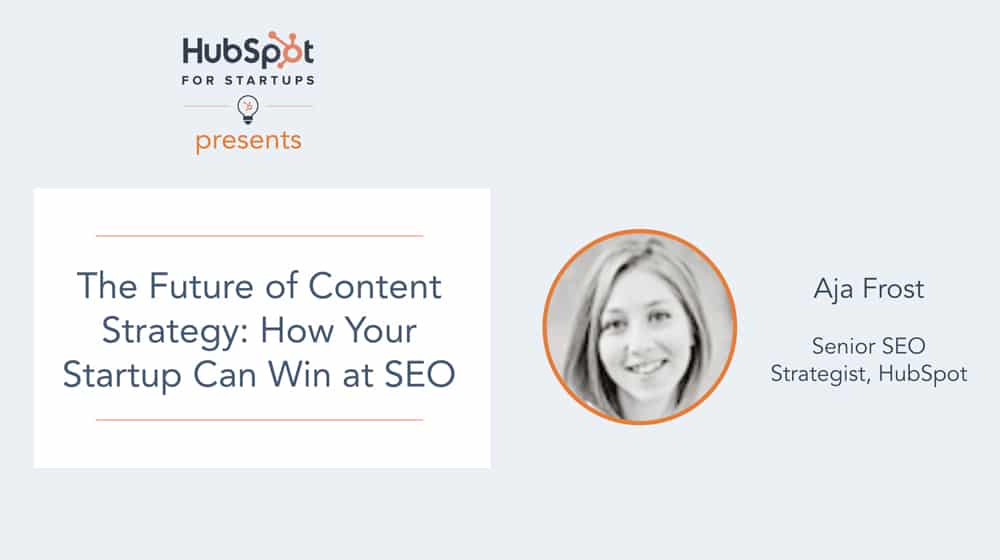
Webinars are something of an advanced technique you can use to both make money and generate leads. The trick is, you have to be an established brand to pull it off. If you're not at least somewhat established, you're not going to get any traction to your webinars. After all, who is going to attend a speech by someone who no credibility? You need to have that basis of authority.
Thankfully, it's not really that hard to set up a webinar once you've decided you want to run one. From there, it's all about marketing it to attract people into your grasp.
15. Content Marketing and Blogging
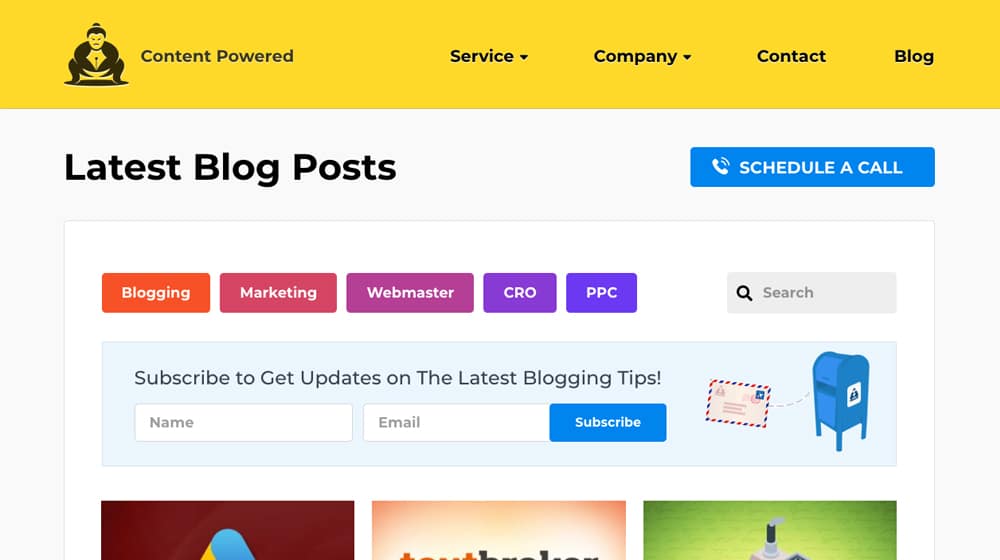
The final route to diversifying your marketing is something I'm a little biased towards, of course, but that's because it works. Content marketing – both on your own site and with content-based outreach like guest posts and sponsored content – is incredibly valuable. Not only do you get the immediate benefits of publication, links, traffic, and social shares, but you gain the long-term benefit of building up a content library attached to your brand name and, in some cases, your personal name.
You position yourself as an authority, and can leverage that authority for other benefits in marketing and beyond. And hey, if you don't want to manage the blog yourself, I know people who can do it for you. It's win/win!








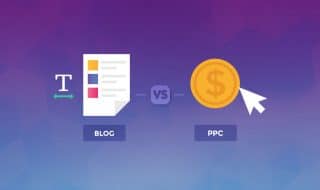

January 20, 2021
Optmyzr is highly recommended. Been using it for a year now and it's great. Easy to use and reporting is good.
January 22, 2021
Hey Ryan!
Have you tried AdEspresso, and if so, how would you compare the two?
Would love to hear why you prefer Optmyzr over other options 🙂
Thanks for sharing with us!
February 10, 2021
We have a client that uses both Google Ads and Bing though their company has a lot more budget for Google than Bing because Bing is cheaper. It actually has a higher CTR.
February 11, 2021
Hey William!
Thanks for sharing.
Curious about the total budget for both campaigns and the cost per conversion for both.
Could you share those details?
September 20, 2021
So far our budget was placed to Google, Facebook, LinkedIn, and Bing Ads. Though the last 2 only has 5-10% of our budget just enough for Brand Awareness campaign. I would like to try some YouTube Ads but I'm having a hard time. Any advice on how I should distribute these?
September 23, 2021
Hey Dean!
If your ads are for brand awareness and not conversions, tracking performance will be a little trickier.
YouTube may be better than all of these for brand awareness, depending on your industry.
YouTube Ads is part of the Google Display Network, and you will set those up in your Google Ads dashboard.
You have a lot of ads running, so my advice is to pick an important KPI. Is it time spent on your website or the number of pages visited? You don't want to pay for visitors who leave your site right away or don't bother clicking around to learn more about your brand.
I hope this helps!
December 12, 2021
Haven't heard of AdEspresso until just now. What a great timing, coz I've looking for ways to improve my current Facebook Ads. I will surely give this tool a try..
December 20, 2021
Hey David!
Happy to help you. AdEspresso is great.
Their content marketing is next-level, too—great inspiration for anyone looking to learn how to run a blog properly.
January 12, 2022
We've mostly been focusing on LinkedIn and Quora. But it's interesting to see Reddit here. I agree about the hostility there and one should really be cautious before using it for marketing.
January 12, 2022
Hey Samson!
Definitely - people should take that seriously. Reddit is brutal towards self-promotion.
It usually gets downvoted, or you'll get banned. You have to be real subtle and creative with how you promote there.
Quora is much more friendly towards self-promotion, as is LinkedIn! They generally don't drive nearly as much traffic, but they can work very well.